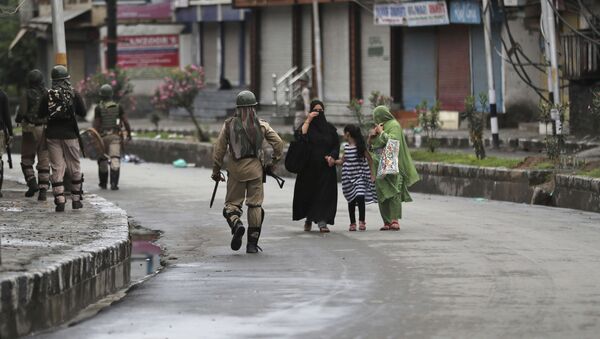According to Jammu and Kashmir Chief Secretary B. V. R. Subrahmanyam, there will be a phased removal of all restrictions in the Kashmir Valley, while keeping in mind threats of banned terror organisations such as Lashkar-e-Taiba.
In a media briefing, Chief Secretary Subrahmanyam said schools would be re-opened in the state starting Monday while government offices were made fully functional on Friday.
He also said 12 out of the state's 22 districts are functioning normally, adding that five districts still have limited restrictions.
The top official said the preventive detention of political leaders such as former chief ministers Omar Abdullah and Mehbooba Mufti would end gradually.
Regarding the loss of life in the Kashmir Valley since the imposition of restrictions, he said: "No loss of life during restrictions despite organisations like Hizb-ul-Mujahideen and Lashkar-e-Toiba attempting to create law and order problems".
He also said telephone lines would be opened gradually starting from Friday night and medical facilities, food and other essentials are being supplied.
Subrahmanyam said the broadcast of satellite television had commenced and newspapers are being published while public transport would start operating gradually.
The area has been under an unprecedented lockdown since the central government's 5 August move to revoke the state's special status through abrogation of Article 370.
Over 40,000 additional troops have been deployed across the state to prevent any untoward incidents. Restrictions were eased during the Islamic festival of Eid-ul Adha on 12 August and during Friday prayers in mosques.
Jammu and Kashmir's special status was repealed by revoking Article 370 and Article 35A, last week despite the concerns of oppition parties.
The government also divided the state into two federally administered territories – Jammu and Kashmir and Ladakh.
Kashmir has been a bone of contention between India and Pakistan since the countries gained freedom from British colonial rule in 1947. Both states govern part of the region but have claims to it in its entirety. The rivals have even fought two wars in the region.


